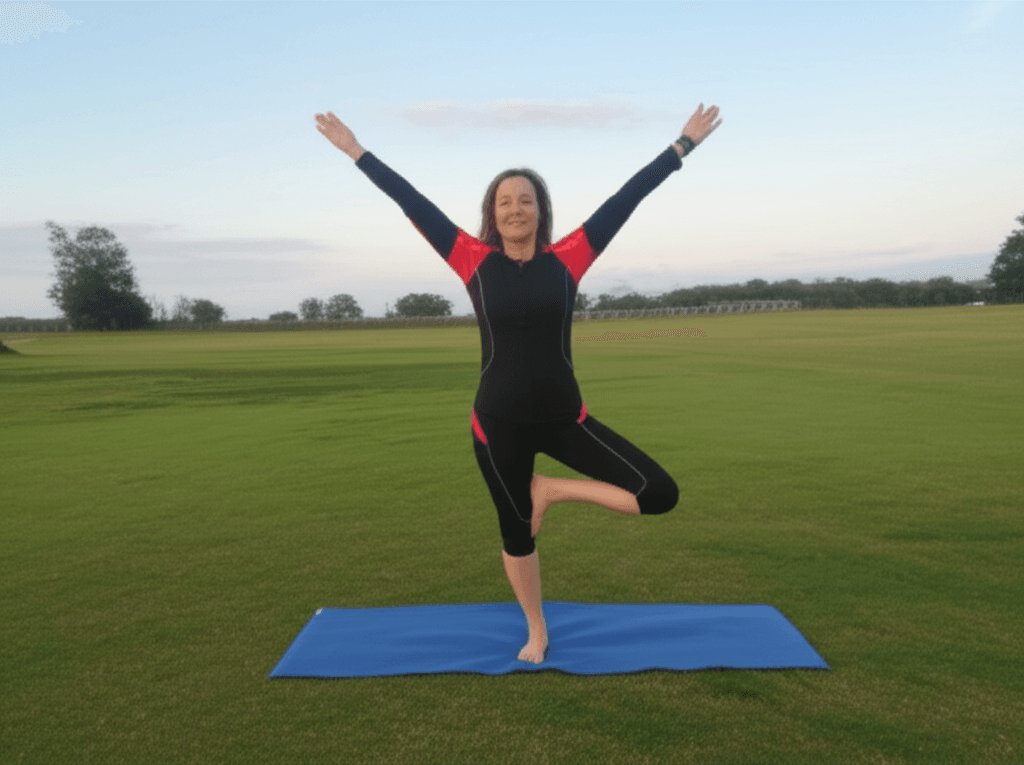In an age where mental health challenges are increasingly prevalent, finding effective and accessible strategies for well-being is more crucial than ever. While often celebrated for its physical benefits, exercise emerges as a powerful, scientifically-backed tool for enhancing mental health, offering a wide array of advantages from mood regulation to cognitive enhancement. It’s a natural intervention that can significantly improve one’s emotional and psychological state.

Key Benefits of Exercise on Mental Health
Regular physical activity provides a holistic boost to mental well-being, addressing various aspects of psychological health.
Reducing Stress and Anxiety
Exercise is a potent stress reliever. Physical activity can help pump up the production of endorphins, the brain’s “feel-good” neurotransmitters, which can increase feelings of happiness and reduce pain perception. It also helps cut down on the negative physiological effects of stress by lowering levels of stress hormones like cortisol and adrenaline. Engaging in physical activity serves as a distraction, temporarily freeing the mind from daily worries and breaking the cycle of negative thoughts that contribute to stress and anxiety. Even short bursts of aerobic exercise, such as a 5-minute session, can begin to stimulate anti-anxiety effects.
Alleviating Depression Symptoms
For individuals experiencing depression, exercise can be as effective as medication for mild to moderate cases, and it works without the side effects. Research indicates that regular exercise can significantly improve mood and reduce symptoms of depression. This is largely due to its influence on neurotransmitters such as serotonin, dopamine, and norepinephrine, which play crucial roles in mood regulation. Physically active individuals are also less likely to develop symptoms of depression.
Boosting Mood and Self-Esteem
Beyond alleviating negative symptoms, exercise actively enhances positive mental states. It boosts mood by stimulating the release of endorphins and serotonin. As individuals notice improvements in their fitness, endurance, or strength, they often experience a heightened sense of accomplishment, control, and empowerment, which in turn boosts self-confidence and self-esteem. Regular activity is an investment in one’s mind, body, and soul, leading to a more positive outlook on life.
Enhancing Cognitive Function
Exercise isn’t just good for your mood; it’s excellent for your brain. Physical activity improves concentration and memory. It stimulates the growth of new brain cells and promotes neuroplasticity, the brain’s ability to form new neural connections, particularly in areas important for memory like the hippocampus. Studies show that exercise can enhance general cognition, memory, and executive functions like planning and problem-solving across all age groups and health statuses. Even short bursts of physical activity can boost brain functions.
Improving Sleep Quality
Sleep is intrinsically linked to mental health. Stress, depression, and anxiety often disrupt sleep patterns. Regular exercise can significantly improve sleep quality, which is vital for both physical and mental recovery. A good night’s rest helps in managing mood and overall mental health.

The Science Behind the “Feel-Good” Effect: Mechanisms at Play
The positive impact of exercise on mental health is rooted in a complex interplay of physiological and psychological mechanisms.
Neurotransmitter Release
One of the primary ways exercise influences mental health is by promoting changes in brain chemistry. Physical activity stimulates the release of “feel-good” neurotransmitters such as endorphins, serotonin, and dopamine. Endorphins are known for producing feelings of euphoria, often called a “runner’s high,” and reducing pain perception. Serotonin and dopamine play vital roles in regulating mood, and increased levels can significantly alleviate symptoms of depression and anxiety.
Stress Hormone Regulation
Exercise helps the brain cope better with stress by modulating systems that control stress-related hormones. It reduces the levels of stress hormones like cortisol and adrenaline in the body, leading to a sense of calm and relaxation. Over time, this adaptation can also help prevent stress in addition to reducing existing stress.
Neuroplasticity and Brain Structure
Regular physical activity promotes neuroplasticity, allowing the brain to adapt and reorganize itself. This is particularly important in brain regions like the hippocampus, prefrontal cortex, and anterior cingulate cortex, which are often affected in individuals with depression. Exercise can increase the volume and improve the structural integrity of these brain areas, potentially reversing some neural damage associated with mental health conditions. It also increases blood circulation to the brain, which is proposed to contribute to improved mood.
Reduced Inflammation
Chronic inflammation has been linked to various mental health disorders, including depression and anxiety. Exercise can reduce inflammation by decreasing levels of pro-inflammatory cytokines and increasing anti-inflammatory markers, contributing to improved mood and overall mental health.
Psychosocial Factors
Beyond biological changes, exercise offers significant psychological and social benefits. It provides a healthy distraction from negative thoughts and worries. Achieving fitness goals can enhance self-efficacy and a sense of control. Furthermore, exercising with others can foster social interaction and support, combating feelings of loneliness and isolation.

Types of Exercise for Optimal Mental Well-being
Almost any form of exercise can provide mental health benefits, but some activities offer unique advantages. The most important factor is choosing an activity you enjoy and can stick with.
Aerobic Exercises
Activities that elevate your heart rate, such as running, swimming, cycling, dancing, or brisk walking, are excellent for boosting endorphins and reducing stress hormones. They improve cardiovascular fitness and circulation, directly contributing to better mood and reduced anxiety and depressive symptoms.
Mind-Body Practices
Yoga and Tai Chi combine physical movements, breathing techniques, and meditation, making them highly effective for stress reduction, relaxation, and promoting mindfulness. Pilates also emphasizes core strength, body awareness, and controlled movements, offering a balanced approach to mental and physical well-being. These practices can improve flexibility, balance, and strength while reducing anxiety, depression, and improving mood.
Strength Training
Lifting weights or engaging in resistance training can help reduce stress by focusing the mind and releasing physical tension. The physical effort promotes a sense of accomplishment, and building strength can improve self-confidence, further reducing stress.
Walking and Nature
Simple, accessible, and highly effective, walking, especially in nature (often called “forest bathing”), is a great way to reduce stress, clear your mind, and improve mood. It’s a low-impact activity that can be done alone or with others, offering opportunities for social interaction.
Team Sports
Team sports like basketball, soccer, or volleyball offer both physical activity and valuable social interaction, which can significantly benefit mental health by fostering friendships and reducing social anxiety.

Getting Started: Practical Tips for Incorporating Exercise
Integrating exercise into your routine for mental health benefits doesn’t require becoming a fitness fanatic. Modest amounts of activity can make a real difference.
Start Small and Be Consistent
The key is consistency, not intensity, especially when starting out. Even 10-15 minutes of light physical activity can impact stress levels. Instead of aiming for perfect workouts, set small, daily goals and prioritize regularity. Three 10-minute walks can be as beneficial as one 30-minute walk.
Find Enjoyable Activities
Choose activities you genuinely look forward to, rather than viewing exercise as a chore. Whether it’s dancing, gardening, hiking, or swimming, finding joy in movement increases the likelihood of adherence.
Aim for Recommended Guidelines
Most healthy adults should aim for at least 150 minutes of moderate-intensity aerobic activity or 75 minutes of vigorous aerobic activity each week, or a combination of both. Additionally, include strength training exercises for all major muscle groups at least twice a week. For even greater benefits, or to aid in weight management, consider increasing moderate aerobic activity to 300 minutes or more weekly.
Consider Group Activities
For extroverted individuals, classes and group activities can make exercising more fun and provide social support.
Consult a Healthcare Professional
Before starting a new exercise plan, especially if you have existing health concerns or haven’t exercised in a while, talk to your healthcare professional. They can offer personalized advice and ensure the plan is safe and appropriate for you.
Exercise is a powerful, accessible, and natural remedy that profoundly impacts mental health. By understanding its multifaceted benefits and incorporating consistent, enjoyable physical activity into daily life, individuals can unlock a significant pathway to improved mood, reduced stress, enhanced cognitive function, and overall psychological well-being.







